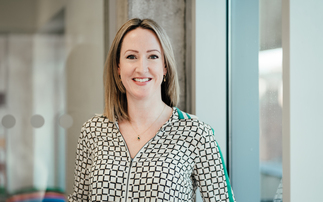It is universally acknowledged that technology will greatly enhance the way we work in the future, but unless intermediaries climb on board now they may get left behind, writes Ben Marquand
Technology and the internet are now accepted as two of the more inescapable aspects of everyday life, but a recent survey by GE Frankona RE indicates that only 28% of intermediaries are able to trade over the internet and only 34% are using electronic systems such as databases and PCs to manage their clients' ongoing needs.
But most intermediaries surveyed believe around half their business will be placed electronically in five years time. Therefore, while it is accepted that we are still a long way away from the paperless office, there is real danger that those who are not familiar with current technology will be left even further behind in the next few years.
A separate survey of 600 intermediaries conducted by Exchange FS, reported nearly 68% believe the most important objective from technology is to deliver improved levels of service to clients. And, most feel the two key areas where this can be delivered are through individual website strategies and so called 'back office' business processes.
Improving client services
The most obvious area in which intermediaries can improve client servicing is in the back office systems where information on clients is stored and can be used to speed up administrative work. The research from Exchange FS discovered that 75% of intermediaries now have some form of back office system.
Charles Levett-Scrivener, product services director at IFA group Towry Law, says: 'We have spent the last few years investing in straight through processing which can save time, reduce errors, and also save time in checking for errors. Our enquiry management system means no one in the chain should have to re-key information, it is a complete loop.'
Smaller firms may find it cheaper to purchase a system from a protection portal provider. Ian Boswell, financial services product manager at specialist PMI portal Mediquote, says: 'We have a desktop product, Swift, which can be used by IFAs to maintain clients' details and records. It has workflow triggers to help process work and remind intermediaries of events that will need to be attended to in the future. They can be kept up to date and on top of compliance issues. It works from a central machine on an extranet system, which can share the information with offices across the country. It is important to be able to pass data around without having to re-enter information. Back office systems are all about saving money on the administrative side. There is no duplication of effort or risk of getting details wrong.'
There are now a number of options for intermediaries who want to use technology to develop their protection business to a wider audience, and most involve having an online presence, be it through their own website, or through a white labelled site from one of the portals.
The most elementary way of reaching a wider potential audience is to have a non-interactive website which acts as an advertising board providing details of both the services available and how to contact the intermediary. This is relatively straightforward to set up and need not be expensive, with some protection sourcing portals providing a free service to intermediaries. Stephen Wynne-Jones, head of life and health protection at Exchange FS, says: 'Intermediaries could go to a web agency and spend tens of thousands of pounds on designing their own website. But there are now a lot of tools from portal providers that allow intermediaries to build their own personalised website from around £25 to £30 per month. These sites can then be linked into whatever protection services are required.'
Sophisticated searches
However, as consumers become more sophisticated they expect more from a website than just a list of available services and a phone number. They want to be able to search for information and products themselves before they take advice, so the most basic websites may not actually attract that much new business. Peter Anderson, at Royal & SunAlliance, says websites should allow consumers to look at what products are available by themselves before they come in and find out which one is actually the best for them. He says: 'We have a site that can provide educational information on the group side of the business, because we have found people do not want to surf the net for advertising when they go online ' they do so for information.'
Even so, attracting new business may not be as simple as merely having an interactive website. Wynne-Jones says: 'The more complex the offering the higher the cost, so intermediaries need a definite strategy and to understand what they will do with the leads that come in through the site. Consumers expect the same level of service with the internet as they would when they pick up the telephone.'
'In terms of IFAs' own websites they have to think about what they expect to get from the site and what potential customers expect from sites. And they have to be conscious that it does put them on the world stage, so they must be prepared to deal with customers from further afield.'
Despite this, many intermediaries remain cautious about a complete reliance on technology. Stephen Walker, principal, at specialist PMI intermediaries Medical Insurance Services, says: 'I have a website, although it is used for enquiries and information rather than writing business online. It is used to explain my role and allows customers to log their details with me. I do not think it is wise at the moment to let customers buy direct from intermediaries' websites because it leaves you open to allegations of misbuying where people are not fully aware of what they are getting. I am concerned about giving the best advice, and I think if we did business solely through e-commerce there would be gaps, especially with medical insurance. It is not the 'be all and end all' at the moment, but maybe in time it will be.'
Birth of the portal
Those who do use the internet to help keep up to date with products will be aware that the electronic service industry has given birth to a wide range of portals over the last decade which can help to source comparative life and protection quotes.
Intermediaries can use them to source information on a wide range of related protection products, but also receive the latest new stories, find provider application forms and sometimes link through directly to providers' sites. These portals vary both in terms of which areas they focus on and which providers products they have information on. Some are based on a disc-based desktop system, others are based on information regularly updated by providers and others based on a 'live' link with providers.
One such provider, Synaptic, has a disc-based system which is updated regularly. Darren Bayley, marketing director at Synaptic, says: 'We have a desktop product, which contains details of pensions, life, health, offshore, investments, mortgages and group products. It looks at everything in the market place. IFAs can see all the special offers available and all the criteria such as non-smoking rates. By selecting the key criteria it eliminates the market place to leave the most suitable products. It is kind of a best advice system. It produces an audit trail as part of the client process which can produce a printable record for the consumer and it has the facility to produce pre-populated application forms.'
Another portal, m-link is run by MISYS and although product information is automatically updated when brokers log on to the site, it allows them to work offline. Andrew Bedford, head of marketing at MISYS, says: 'm-link is basically an offline system. All the key features sit on the PC and when the broker logs onto the site it updates these key features automatically, but lets them work offline.'
The Exchange FS and Assureweb portals are two of the largest providers of protection sourcing services and are the only two portals to have developed an end to end online application process, although this is only available with Legal & General.
Nicola Mitchell, sales and marketing director at Assureweb, says: 'Intermediaries can get the information back in seconds. It can be made client specific so they can choose things, such as whether the client wants it with or without waiver to make it more personal and refined.'
The cost of portals varies according to the company and to the range of products available. Jonathan Davey, managing director of Mediquote, says that because some providers pay to be on their system they can offer parts of the service free to brokers. 'We have got some funding from insurers which allows us to provide part of the system free to brokers. However, if they want the full range of products they will have to pay for it which costs £22 per month plus VAT. However, as more providers come on board we would eventually like to make it all free to advisers,' he says.
Bedford says the number of providers available on the different portal providers varies, but even so, there are very few that are able to send applications to providers electronically. Bedford says: 'At the moment, brokers still have to print off application forms for everything but single premium bonds on m-link, and it will be quite a while before we can use electronic through processing.'
Although IFAs are aware of all the technology available they are still cautious about its application. Roger Higgins, senior partner at Higgins and Partners IFAs, says: 'We use the internet reservedly to help with applications, because being independent you need technology now because it is impossible to know all the products on the market. Technology represents the future.'
So it appears that despite the technology currently available to intermediaries, it will be several years before even the most technologically advanced firms are prepared to fully embrace the latest innovations.
Cover notes
Service providers will set up personalised websites for IFAs for around £25-£30 a month.
Portals enable IFAs to source comparative life and health quotes, find application forms and link up to provider's websites.
Systems provide an audit trail, making it easier for IFAs to operate in a compliant way.










